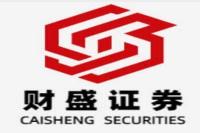A500 ETF: The Battle for the Last Piece of the Wide-Base Pie
Meta Description: Dive into the intense competition surrounding the A500 ETF launch, with insights on the key players – brokers and banks – vying for "券结" (brokerage commission) and "托管" (custody) rights, while exploring the potential impact on the existing ETF market, particularly the battle for the coveted "沪深300" ETF market.
The A500 ETF, dubbed the "last piece of the wide-base pie" in ETF circles, has ignited a fierce competition among fund management companies. This isn't your typical ETF launch; it's a battleground for market dominance, with brokers and banks scrambling for the coveted "券结" (brokerage commission) and "托管" (custody) rights. But why is everyone so excited about this seemingly innocuous ETF?
Let's rewind a bit. The A500 ETF, tracking the new China Securities Index 500 (CS500), is a wide-base ETF targeting the top 500 freely-circulating stocks in the market. This seemingly straightforward ETF represents a potential goldmine for both fund management companies and the brokers and banks who handle its distribution.
The "券结" and "托管" rights are the key to unlocking this treasure trove. The "券结" gives the broker the commission on trades, while the "托管" entitles the custodian to manage the ETF's assets and collect hefty fees. In the past, these rights were often secured by fund management companies offering generous commissions to brokers, incentivizing them to sell the ETF to their clients.
However, the recent "佣金新规" (new commission regulations) in July 2024 has changed the game. These regulations have effectively eliminated the use of commissions to drive ETF sales. This shift has fueled the competition for "券结" and "托管" rights, as these have become the primary bargaining chips in the A500 ETF launch.
The Brokerage War: 国泰君安 vs. 海通证券
The two leading contenders for the A500 ETF market share are 国泰君安 and 海通证券. Both are heavyweights in the ETF space, but 国泰君安 has consistently outperformed 海通证券 in recent years, boasting a stronger position in the ETF market.
The announcement of a potential merger between the two brokers has further intensified the competition. 国泰君安 is poised to absorb 海通证券, but the merger negotiations have ignited a fierce battle for key positions and resources.
海通证券 is determined to prove its worth, particularly in the wealth management sector, considering the potential job cuts that could arise from the merger. Meanwhile, 国泰君安 is eager to defend its dominant position in the ETF market.
The A500 ETF launch has become a proving ground for both brokers, with each striving to demonstrate its superior capability to attract and retain clients. The early results seem to favor 国泰君安, with its successful "券结" agreements for two of the first A500 ETF launches: 嘉实基金 and 摩根资管.
Banks Enter the Fray: A New Era of ETF Custody?
Traditionally, banks have been the dominant players in ETF custody. However, the growing popularity of ETFs and the "佣金新规" have seen brokers increasingly taking on the role of custodians. This trend has spurred banks to defend their turf and reclaim their share of the ETF market.
In the A500 ETF launch, banks have stepped up their game, offering attractive guarantees to secure custody rights. For example, some banks have reportedly promised guaranteed sales of ETF-linked funds (ETF联接基金) at a minimum size of 1 billion yuan (roughly $140 million) in exchange for custody agreements.
This aggressive strategy signals a new era in the ETF custody landscape, with banks actively competing with brokers for a larger slice of the ETF pie.
The Rise of Index Funds and the Battle for the 沪深300 Crown
The A500 ETF launch coincides with a larger trend in the Chinese market: the growing popularity of index funds, particularly ETF-linked funds. The Chinese market is increasingly favoring passive investment strategies, fueled by a growing investor base seeking lower-cost alternatives to actively managed funds.
The A500 ETF is seen as a direct competitor to the 沪深300 ETF, which currently dominates the wide-base ETF market. The沪深300 ETF, tracking the CSI300 Index, is the benchmark for the Chinese stock market and has attracted significant investment from institutional investors, including the National Team (国家队) – a group of state-controlled investment funds.
This makes the A500 ETF launch a strategic battle for the National Team's investment. With the A500 ETF offering a similar exposure to the Chinese stock market, fund management companies are vying for a piece of the National Team's portfolio.
The absence of several leading ETF players, including 华夏基金, 易方达基金, 华宝基金, 广发基金, and 博时基金, from the A500 ETF launch has added to the speculation surrounding the competition. This raises questions about the regulatory rationale behind the selection of specific fund management companies and the speed with which the CS500 index was launched.
The Future of the A500 ETF: A New Chapter in the Chinese ETF Market
The A500 ETF launch is not just a competition for market share; it’s a defining moment for the Chinese ETF market. This new ETF has the potential to reshape the landscape, challenging the dominance of established products like the 沪深300 ETF.
The outcome of this battle will have significant implications for the ETF market and the broader Chinese financial landscape. It will determine which players will emerge as dominant forces and how investors will navigate the evolving investment landscape.
FAQ
Q: What is the A500 ETF?
A: The A500 ETF is a wide-base ETF that tracks the China Securities Index 500 (CS500), which includes the top 500 freely-circulating stocks in the Chinese market.
Q: What are the key factors driving the competition for the A500 ETF launch?
A: The competition is driven by the desire to secure "券结" (brokerage commission) and "托管" (custody) rights, which have become the primary bargaining chips in the post-"佣金新规" (new commission regulations) era. This competition is also fueled by the potential for the A500 ETF to attract investment from the National Team, which has been a major driver of growth in the 沪深300 ETF.
Q: What are the implications of banks entering the ETF custody market?
A: The entry of banks into the ETF custody market signals a shift in the traditional custody landscape. Banks are actively competing with brokers for custody rights, offering attractive guarantees to secure these rights.
Q: What are the potential implications of the A500 ETF launch for investors?
A: The A500 ETF launch offers investors a new option for gaining exposure to the Chinese stock market. The competition for market share could lead to lower fees and improved services for investors.
Q: What are the potential implications of the A500 ETF launch for the ETF market as a whole?
A: The A500 ETF launch could potentially reshape the Chinese ETF market, challenging the dominance of established products like the 沪深300 ETF. The launch could also encourage innovation and accelerate the growth of the ETF market in China.
Q: What is the future of the A500 ETF?
A: The future of the A500 ETF is uncertain but holds significant potential. The ETF has the ability to attract a large amount of investment, particularly from the National Team. However, the success of the ETF will depend on several factors, including the fund management company's ability to manage the ETF effectively and the overall performance of the Chinese stock market.
Conclusion
The A500 ETF launch is a watershed moment for the Chinese ETF market, signaling a new era of competition and innovation. The battle for this lucrative market share, with brokers and banks vying for "券结" (brokerage commission) and "托管" (custody) rights, reflects the growing demand for index funds in China. The potential impact on the existing ETF market, particularly the battle for the coveted "沪深300" ETF market, is significant and will be closely watched by investors and market analysts alike. As the Chinese ETF market continues to evolve, the A500 ETF launch is poised to be a defining moment, shaping the future of passive investment strategies in China.



